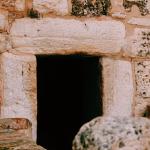Balancing public health and the right to free exercise of religion has been a difficult challenge throughout the COVID-19 pandemic, and no one can seem to agree on what should and shouldn’t be allowed. Earlier this year, the Supreme Court decided to defer that choice to the judgement of state governors. This helped California and Nevada where cases were spiking at an accelerated rate.
That decision, however, was only narrowly won by a 5-4 margin. Last Wednesday, the court changed its tune. Amy Coney Barrett, Justice Ruth Bader Ginsburg’s replacement, helped to swap the choice for a new 5-4 conservative majority that invalidated restrictions on worship services in hot zones designated by New York Gov. Andrew Cuomo.
The ruling, brought by Catholic and Orthodox Jewish congregations, was especially notable because houses of worship are no longer “subject to any fixed numerical restrictions”.
“Now the United States Supreme Court said in this most recent ruling that the Constitution does not take a holiday during the pandemic, in some ways those rights are more important and more necessary than ever,” said legal analyst Dan Eaton.
The new ruling is giving hopes to churches outside of New York, who are now planning to resume full services.
“They’re not asking for no restrictions, they’re asking to be given the same opportunities as others establishments, which is follow the protocols that other retailers are allowed to follow,” said Paul Jonna, an attorney representing South Bay United Pentecostal Church in California said.
Greg Fairrington, pastor of a Rocklin megachurch, has been defying California’s pandemic restrictions since the beginning, but now is eleated he can hold services legally.
“There is no world in which the Constitution tolerates a color-coded executive edict that opens liquor stores … and bike shops but shutters churches,” Fairrington said, quoting the opinion written by Justice Neil Gorsuch.
“The Supreme Court of the United States of America — yeah! We have a biblical mandate and First Amendment rights!”
Legal experts say the new ruling doesn’t mean churches can do whatever they want. They will still have to follow local public health guidelines, but it might make politicians ease up on restrictions on houses of worship to avoid legal challenges.


